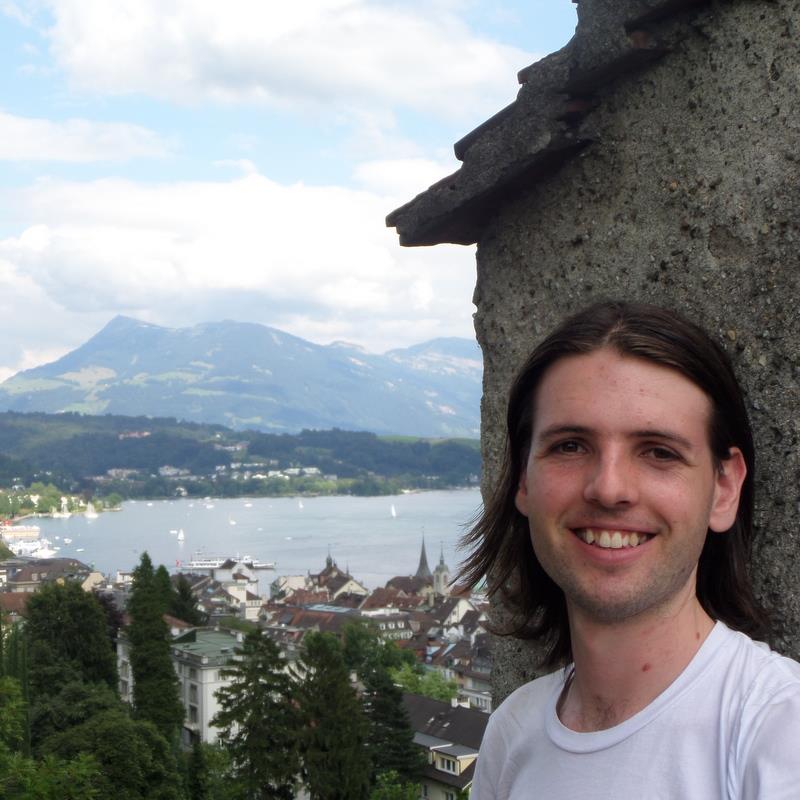An astronomer at CERN.
I first heard about the programme after a visit to our university by Emmanuel Tsesmelis, who is one of the international liasons for CERN - to the Asia-Pacific region. He visited my home university in New Zealand and lectured there. Well, I had never really before considered particle physics as an option (we don't have much research capability in that field down under) but it has always fascinated me. So when we had a quick talk and it turned out that my final-year research project on methods of indirect dark matter detection was quite well-aligned with CERN's range of research. Therefore I decided to jump at the chance to come here.
What is your previous background?
I'm actually an astronomer, starting my PhD in that field in October, so this was a change for me. I've never been to CERN before. I had visited a nuclear research facility in Australia and had some small idea of what particle / nuclear physics involved, and of course taken a couple of theoretical courses in particle physics, but arriving on site and seeing the range of research done here really blew my mind! I think the thing that impresses me the most is the integration of all the previous accelerators to feed into the LHC ring itself. I had never really considered that the CERN site would have been developed in this fashion over a period of a few decades - it was always just "the LHC, which was built all at once over in Switzerland" to my ignorant self!

Scott Thomas in Luzern.
Tell us a few words about your project...
I've been working on a technique called "data scouting", which is a way to further probe for low-mass resonances that have become increasingly inaccessible as increasing luminosity makes the number of events at low energy overwhelming. We came up with a way to increase the rate at which we can capture these events by drastically reducing the amount of data we store, then compared to fully reconstructed events to derive correction factors for using this method. The results are very promising and it's been an excellent overview of several topics for me: the underlying physics, some statistical methods, programming in C++, and of course now presenting these results.
Is your experience so far close to what you were expecting?
This is an incredible environment for science and I love a lot of things about the place. The internationality, the atmosphere, the weather (seriously, I love thunderstorms... and it has been pretty stunning most of the time), the emphasis on training and education and public outreach, and the thousands of very very clever people of course. We were especially lucky to be able to visit underground this year - wow, what a treat!
Would you like to spend more time at CERN continuing with your research?
I have a PhD in astronomy to start now, so no immediate return for me :( But astroparticle physics in particular interests me and I would certainly be interested in continuing work in this field. Not on this project, because we hope that it will be finished and even published by the end of this year, but I would definitely like to return.
Did you travel around CERN?
Of course! I managed to get to Lausanne and Lucerne, the first with a visiting friend and the second to visit a Swiss friend; to Zurich; to explore Geneva of course; and to walk and cycle in the countryside next to the Jura mountains. I would love to come back and explore more some time.
From my time as a summer student at CERN I will certainly remember...
The t-shirts, the lightning storms, lots of fun with my fumbling beginner French, and coming across the Cycle Messenger World Championships in Lausanne, a tremendously fun sport to watch that I can't say I knew ever existed until now.
